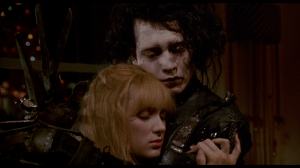Amongst the usual merry-go-round of Christmas songs, one song has captured my undivided attention this year: Frank Sinatra’s rendition of Ave Maria. It’s not necessarily a Christmas song; it’s not necessarily a song that I have cared much about in the past; and I only really started caring about Frank Sinatra two years ago when ‘One For My Baby (And One More For The Road)’ literally stopped me in my tracks.[1] This year, however, Sinatra’s rendition of Schubert’s much-loved piece has been the gentle yet sublime musical offering that I have needed during this busy time.
The combination of Sinatra’s deep voice with the soaring choral accompaniment is both uplifting and deeply comforting. He sings a popular Latin interpretation of the song that describes Mary mother of God being with ‘us’ in the hour of our death. This, understandably, could be read as extremely morbid, but for me, feels more like a lullaby. On a basic level, the speaker both entreats and asks for everything to be alright, but through the reassuring ebb and flow of the choir, the plucked violins, and Sinatra’s grounding dulcet tones, we get the sense that everything is already more than alright. How can anything be but OK when we use the present moment to tap into hope, appreciation and gratitude?
I would describe myself as spiritual, rather than religious, and whilst Ave Maria has some serious Catholic affiliations, thanks to the previously mentioned Latin prayer that was later attached to Schubert’s composition, there is ample room for further interpretation. Schubert originally composed Ave Maria as a musical setting for Walter Scott’s epic poem The Lady of the Lake: more specifically, Ave Maria is a musical dramatization of Ellen’s song ‘Hymn to the Virgin’, whispered by the heroine Ellen whilst sheltering in a Goblin cave with her exiled father. There are some problematic references to Mary being ‘undefiled’ and ‘stainless’, which reinforce the virginal standard of ‘perfection’ that has been used to hit women round the head with for hundreds and hundreds of years. Some of the lines, however, in their appeal for some kind of divine maternal protection are beautiful:
‘The murky cavern’s heavy air
Shall breathe of balm if thou has smiled;
Then, Maiden! Hear a maiden’s prayer,
Mother, list a suppliant child!
Ave Maria!’
The poem entreats a greater, spiritual power for comfort, safety and support; to dispense the dank weight of the air in the cavern with the gentle smile of benevolence and clarity. Whoever has felt like a captive in the churning and chattering or their own mind knows the yearning for relief and for lightness; the cavern that Scott describes here, trapping Ellen, could easily reflect the headspace of anxiety, depression and worry.[2] A calm, serene smile in the face of adversity, uncertainty and pain is a wonderful image of transcendence and acceptance. Whilst we may remain critical of the traditional, patriarchal imagining of femininity here, this is undeniably a prayer from woman to woman: Ellen appeals to Mary’s young womanhood here, so uncannily like her own, yet not her own. Ellen is at once a woman like Mary, but so in need of nurture and support, like a small child; Mary’s small child. She appeals to a maternal figure so much greater and more powerful than herself, currently trapped in a desperate predicament. In this reaching, in this supplication to something beyond herself for direction and guidance, she finds peace and joy in the declaration: Ave Maria! It is that same feeling I alluded to earlier of asking that everything be made OK, whilst knowing in the very asking, that everything in this present moment is OK, is as it should be.
Ave Maria then, whilst used in many religious circumstances for this most important time of year for Christians, is also welcoming beyond those confines. Life is so uncertain and awe-inspiring, and it is pieces of music like Ave Maria, and what it has come to mean for me, that soothe our fears. It takes us out of the worries and patterns that keep us stuck and afraid, and opens us to the possibility that if we look beyond ourselves into the mysterious, strange and beautiful world and Universe around us, that we can find inner stability and peace.
[1] My first experience with Ave Maria (as with most of my favourite pieces of classical music) was watching Disney’s Fantasia. The film finishes with the calm parade of pilgrims after the chaos and profanity of Modest Mussorgsky’s Night on Bald Mountain.
[2] This also reminds me of the opening lines of Dante’s Inferno, which could easily be a metaphor for the existential crisis or Dark Night of the Soul that many, if not all of us, will encounter at some point in life: ‘Midway upon the journey of our life / I found myself within a forest dark / For the straightforward pathway had been lost’.



